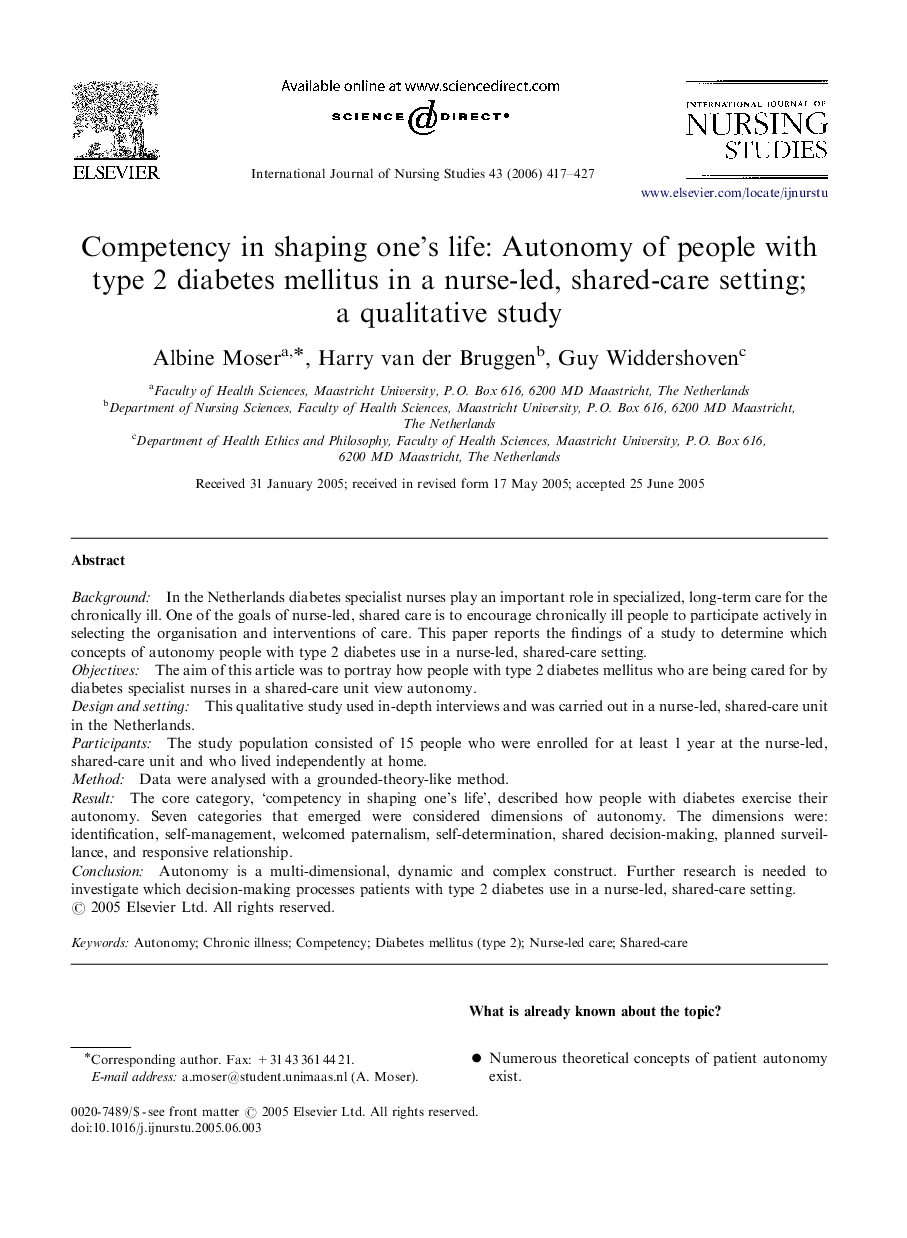| Article ID | Journal | Published Year | Pages | File Type |
|---|---|---|---|---|
| 1077062 | International Journal of Nursing Studies | 2006 | 11 Pages |
BackgroundIn the Netherlands diabetes specialist nurses play an important role in specialized, long-term care for the chronically ill. One of the goals of nurse-led, shared care is to encourage chronically ill people to participate actively in selecting the organisation and interventions of care. This paper reports the findings of a study to determine which concepts of autonomy people with type 2 diabetes use in a nurse-led, shared-care setting.ObjectivesThe aim of this article was to portray how people with type 2 diabetes mellitus who are being cared for by diabetes specialist nurses in a shared-care unit view autonomy.Design and settingThis qualitative study used in-depth interviews and was carried out in a nurse-led, shared-care unit in the Netherlands.ParticipantsThe study population consisted of 15 people who were enrolled for at least 1 year at the nurse-led, shared-care unit and who lived independently at home.MethodData were analysed with a grounded-theory-like method.ResultThe core category, ‘competency in shaping one's life’, described how people with diabetes exercise their autonomy. Seven categories that emerged were considered dimensions of autonomy. The dimensions were: identification, self-management, welcomed paternalism, self-determination, shared decision-making, planned surveillance, and responsive relationship.ConclusionAutonomy is a multi-dimensional, dynamic and complex construct. Further research is needed to investigate which decision-making processes patients with type 2 diabetes use in a nurse-led, shared-care setting.
